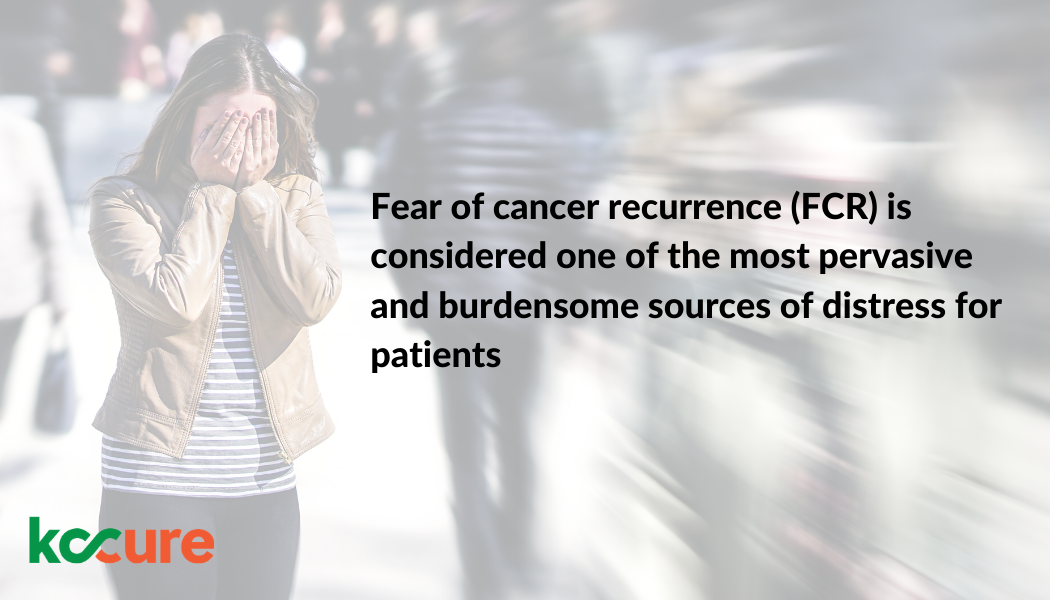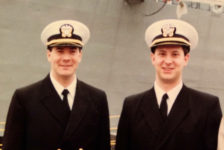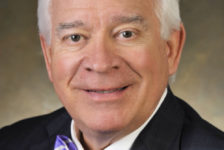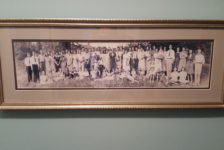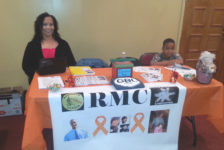In 2009, at the age of 40, my husband Chris, went to the emergency room for what we thought was appendicitis, only to have a CT scan reveal a massive tumor on his kidney.
The next few days were a blur. Chris was just propelled forward like a car on an assembly line – we weren’t so much consulted, just politely informed of what was coming next. Four days later, following a radical nephrectomy, the surgeon pronounced my husband “cured.” “We got it all!” “No need to worry!” “Get on with your lives!”
Our friends and family – the support network that we looked to most for comfort and security – echoed what the doctor was saying. “Just move on.”
But we couldn’t “move on.”
If he was cured, why did we need to get scans later on? What was this thing called “recurrence” that we kept reading about? Why didn’t he need chemotherapy or radiation? Shouldn’t we see an oncologist?
I didn’t know it then – but there is a term for what we were experiencing.
Fear of cancer recurrence (FCR) is one of the most pervasive and burdensome forms of distress experienced by cancer patients.
This Saturday, for the first time ever, data will be presented at the ASCO-GU conference revealing high rates of FCR in patients with renal cell carcinoma. Distress rates are high among all patients – but are higher among women and young patients and they are independent of stage.
People with low stage, highly curable forms of kidney cancer, are suffering from the same rates of anxiety that patients with advanced stage disease are dealing with.
Yet many of them will be told by their doctors – and their friends and family – to “just move on.” Lack of consistent follow-up for patients with localized disease adds to anxiety. Many patients express feeling abandoned by their care teams, isolated from friends and family.
The first step toward improving care is acknowledging that a situation even exists. My hope is that by presenting this evidence, we can begin to change the way we communicate to all patients diagnosed with kidney cancer and help alleviate their emotional suffering.
I want to thank Michael Staehler, the first doctor who ever listened to us about this problem. Whereas others had dismissed these concerns as inconsequential, he suggested doing a survey to measure levels of distress among patients. And more importantly, he helped us to make it a reality by lending his expertise in designing the surveys, analyzing the data and giving us the guidance to publish and present this evidence at conferences like ASCO and AUA.
I want to thank Cristiane Bergerot from City of Hope, the pyscho-oncologist who will be presenting KCCure patient data on Saturday. She poured through responses from our first survey and then worked with us to refine our measurement tools in future surveys. We are remarkably grateful to her, as well as Monty Pal and his entire team at the City of Hope, for believing in this effort and making it a priority to present and publish this data.
Most importantly, thank you to the patients and caregivers in our communities – who have openly and honestly shared their experiences and participated in our surveys to help us aggregate this evidence.
Progress is slow and it will never be fast enough for those who are suffering. But together, our voice is strong and we can make meaningful changes in care.

